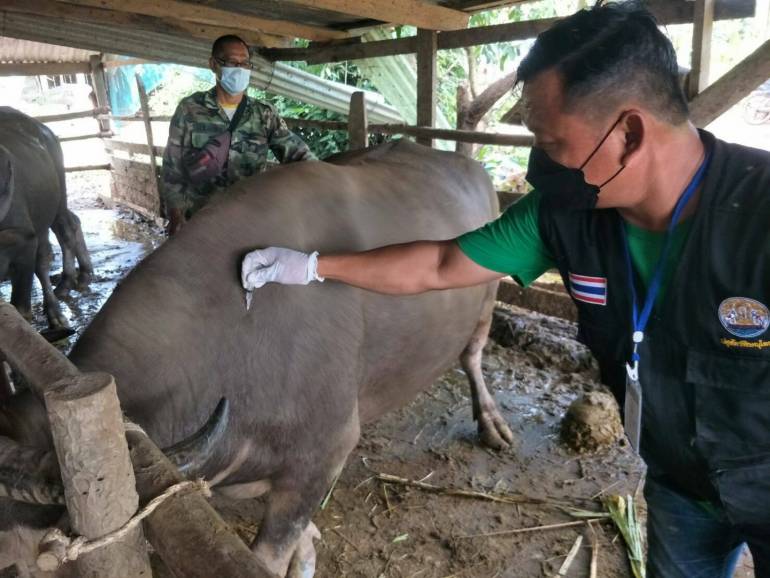The Indian Council of Agricultural Research (ICAR) is confident that its locally created Lumpi-ProVacInd vaccine would be available for purchase in “four to five months” against the lumpy skin disease (LSD) virus that affects cattle.

“Last week, Agrinnovate India, which is responsible for commercialising the goods and technology created by our institutes, released the expression of interest document. Three businesses have already expressed interest, according to Bhupendra Nath Tripathi, the ICAR’s deputy director general for animal sciences.
Lumpi-ProVacInd is a live attenuated vaccine, similar to those used to prevent tuberculosis, measles, mumps, and rubella. It was developed collaboratively by ICAR’s National Research Centre on Equines (NRCE) in Hisar, Haryana, and the Indian Veterinary Research Institute (IVRI) in Izatnagar, UP.
Additionally, it is homologous, offering 100% protection against LSD in cattle. We only currently give out immunizations against the sheep and goat pox viruses. Because all three viruses belong to the same capripoxvirus genus, these heterologous vaccinations only provide cross-protection (up to 60–70%) for cattle against LSD, according to Tripathi. While inactivated vaccinations like Covaxin were employed in the instance of Covid-19, they are less effective and only have a 5–6 month window of protection against capripox viruses. Hence the decision to use a live attenuated LSD vaccination.
As of August 31 in India, LSD has infected around 11.21 lakh cattle and resulted in 49,628 fatalities. The virus, which is primarily transmitted by biting flies, mosquitoes, and ticks, has been identified in 12 states. Its symptoms include fever, appetite loss, nasal discharge, watery eyes, and hypersalivation, as well as severe skin eruptions and inflammatory nodules. There are 31 districts in Rajasthan, 26 in Gujarat, 24 in Punjab, 22 in Haryana, 21 in Uttar Pradesh, 18 in Jammu & Kashmir, 9 in Madhya Pradesh, 5 in Uttarakhand, 4 in Maharashtra, 3 in Goa, and 1 in the Andaman & Nicobar Islands (1).
In April of this year, IVRI conducted experimental tests of the vaccine candidate on cattle, the vaccine’s natural host. These consisted of five “control” animals and 10 male calves who received the immunisation. Both groups of calves received an injection of the dangerous virus a month later. The vaccinated animals had fully established immunity, whereas the control calves still exhibited the majority of the LSD symptoms.
Since July, field tests have also been conducted, beginning with 140 or so cattle (including heifers, bulls, calves, and pregnant and lactating cows) at a gaushala in Banswara, Rajasthan. Along with Hisar and Hansi (Haryana) and Mathura, the vaccination has also been given to animals in 35 more gaushalas and dairy farms in Udaipur, Alwar, and Jodhpur (UP).
However, it will be difficult to produce the Lumpi-ProVacInd vaccine on a commercial scale. Indian Immunologicals Ltd, Hester Biosciences, Brilliant Bio Pharma, MSD Animal Health, and Biovet Private Ltd. are important veterinary vaccine producers. The first two businesses already provide vaccines for sheep and goat pox against LSD in cattle. Approximately 65.17 lakh doses have been given so far throughout the nation.
According to India’s 2019 Livestock Census, there were 193.46 million cattle in the country. To attain herd immunity, according to Tripathi, at least 80% of the population should be protected, ideally with a vaccination that offers full protection.











